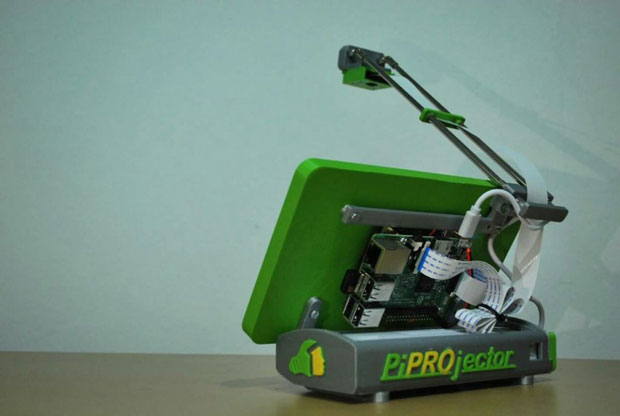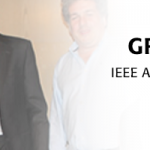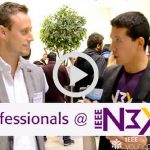IEEE The Institute: Wireless Portable Projector Wins Innovation Hackathon at IEEE Student and Young Professional Congress
by Eddie Custovic
In my previous blog I wrote about the first two days of the IEEE Student and Young Professional Congress held in Sarajevo, Bosnia and Herzegovina, from 1 to 4 December. The third day ushered in the centerpiece of the event: the Innovation Hackathon.
Keynote speaker Sergio Fernández de Córdova kicked off the day. Sergio is a serial entrepreneur who, at the age of 12, started his first business when he purchased a Commodore 64 computer and launched a newspaper. In 2013 he founded Fuel Outdoor, an outdoor media advertising company, and he has never looked back. He went on to found and cofound numerous companies, foundations, and partnerships. Sergio is a delegate for the U.S. Department of State Global Entrepreneurship Program.
Randi Sumner, IEEE’s senior director of strategy and entrepreneurship, interviewed Sergio about his life. He shared his experience as an immigrant from Peru living in New Jersey; his first entrepreneurial efforts; his college days at Rutgers University in New Brunswick, N.J.; and his work on Wall Street. Sergio talked about establishing the PVBLIC Foundation and P3 Global Management, and his involvement with the United Nations Economic and Social Council. Sergio’s passions for sustainable entrepreneurship, combined with his savvy business acumen, made discussing worldwide economic development opportunities extremely exciting and left the entire audience wanting to hear more. It was the perfect start for the innovation hackathon.
Thirteen teams from eight universities first took part in what was called an innovation-refining process. Six experts provided the teams with advice on finances, team chemistry, marketing, business models, market penetration, and other topics. Teams rotated every eight minutes from one advisory station to the next. Students then sat at an empty table to reflect on the advice. After this grueling two-hour marathon, the teams refined their pitches.
The University of Sarajevo Faculty of Electrical Engineering presented a wearable device, Feel the Space, to help blind people navigate while on the move. The device uses ultrasound sensors and the concept of 3-D sound. The team gave a live demonstration with a visually impaired marathon runner! Truly inspirational.
A team of students from the University of East Sarajevo Faculty of Electrical Engineering presented a cloud-based service to help farmers make the most of their land. AgroAdvice uses data available via ground-based and aerial systems to allow agricultural experts and scientists to provide advice to farmers regardless of their geolocation.
A team from the University of Tuzla pitched their idea, It Cares, a wearable device that monitors the elderly and links them to a cloud-based support system. Other classmates from Tuzla developed a smart lighting system prototype. They are proposing the system in conjunction with the local government.
The University of Banja Luka Faculty of Electrical Engineering not only presented but also demonstrated its prototype, Autonomous Presentation Engine, an artificial hostess that provides information to customers based on their proximity to shopping centers.
Other projects included a novel algorithm that monitors individual device power consumption for entire buildings from a single point, mobile applications to assist people in finding vacant seats in cafés and restaurants, and web applications to simplify travel bookings.
The winning team was from the Faculty of Mechanical Engineering at the University of Zenica [below]. Its PiProjector is a slick, low-cost, and portable solution for classrooms that have projectors but no computer to connect the display to. The device contains a compact camera that can be used to project a paper presentation. The device has huge market potential in Bosnia and Herzegovina and other countries where access to such technology is a problem.

All the projects were based on original ideas, creativity, and dedication and effort. The students and their academic mentors dedicated a lot of their personal time and, in some cases, used their own money to purchase parts.
The hackathon proved that young people have the potential to create and make products, and to find solutions to problems in a very limited environment, without significant assistance.
Each of the participating teams is being advised on how to proceed. Some will develop a full business plan. Others are redefining the scope of their project. A number will be launching startup companies in the next three to six months.
It’s promising that the congress attracted new volunteers, motivated and inspired a new generation of innovators, and helped create a collaboration between universities in an ethnically divided country. I am working closely with the Youth Employment Project and the Swiss embassy in Bosnia and Herzegovina to establish an independent nonprofit capital venture fund that will help to establish several startups based on the ideas presented at the congress. The Swiss embassy has pledged more than 1 million Euros, and other private donations are being negotiated.
The media coverage of the congress was enormous. Several publications reported record-breaking traffic to related videos and online articles. There were more than 50 interviews posted online, and seven live TV broadcasts on national and regional stations. More than a dozen radio shows covered the event. There are dozens more features in the works that are focusing on the innovations presented.
WHAT’S NEXT
The organizing committee for the congress has already started thinking about future activities. The enthusiasm from the congress was contagious. Students and young professionals who did not have the opportunity to participate in the 2016 event want to be involved this year.
The congress changed the way young people see and talk about their future in Bosnia and Herzegovina. The likelihood of them staying in the country to create their own businesses and help grow the economy has clearly risen. In a brief post-congress survey, more than 90 percent of participants indicated that their confidence in being able to have a fulfilling career in their homeland had gone up significantly.
This year’s congress will be held from 1 to 4 December.
Read the full article on IEEE The Institute here.






